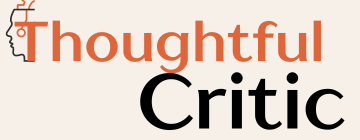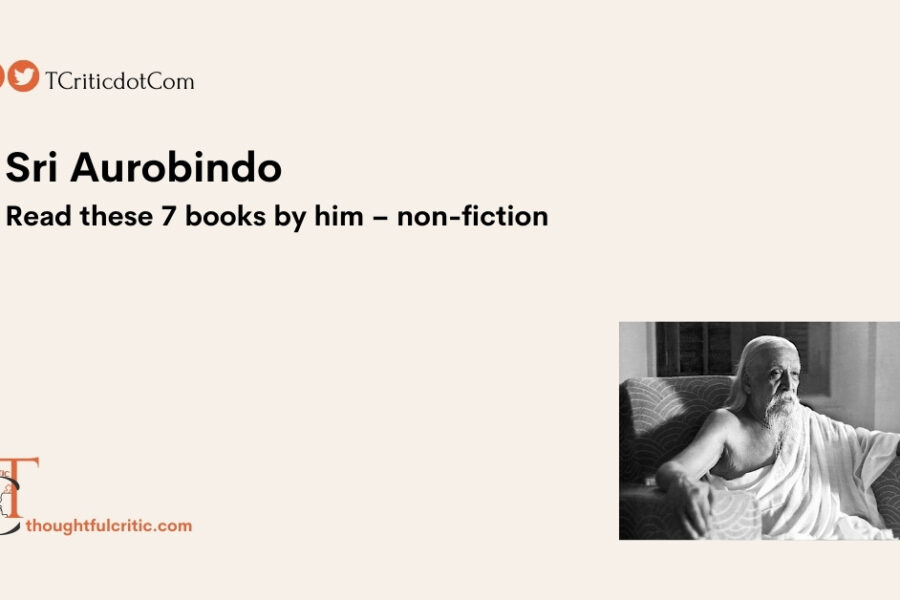Let’s set the record straight before we begin. Philosophy has no direct connection with fiction. A work of fiction can exist without philosophy (or may manage with a hint of it). When philosophy meets fiction, however, the amalgamation is profound! The works by Kafka, Camus, Beckett, Raja Rao, Woolf, Sterne, and others in the league of philosophical fiction writers are relevant and popular even today. With philosophy injected into the flow of fiction, nevertheless, comes mass rejection – there is a limited set of readers who enjoy reading such works. Laurence Sterne faded into the abyss of oblivion long ago. Camus, Kafka, Huxley, and Beckett have a limited circumference of readership. And it is not difficult to conclude that casual works of fiction enjoy a wide readership. Does the perception of a literary work being obscure play a role here? We can conjecture. Coming to the agenda of this article, You are here because you are looking for philosophical novels. Let’s prepare a list of works of philosophical fiction!
Brave New World: Brave New World by Aldous Huxley, beyond being many things more, is a novel that arouses philosophical concerns in readers’ minds. A dystopian novel taking readers into the future with people’s intentions limited to extracting pleasure from anything they do, the novel raises many questions that may keep resurfacing time and again even after you finish reading it. Huxley’s philosophical playground has room for many. Readers with an interest in novels that keep them engaged and excited, psychologically and philosophically invested will certainly enjoy reading Brave New World.
The Serpent and the Rope: Masterpiece of Raja Rao, perhaps the tallest pillar in Indian English fiction, The Serpent and the Rope offers a very distinct experience to readers of English novels. Meant for a global audience, written by an Indian novelist, having Indian solutions to universal problems, this existential novel explores broad themes of philosophical and spiritual pursuits of human beings. Raja Rao’s rich language inherits its quality from ancient Indian masterpieces – the flow and rhythm in Rao’s language, many critics agree, imitates the Vedic texts beautifully. The novel juxtaposes Indian values and beliefs (along with pursuits of spiritual nature) against their Western counterparts.
One Hundred Years of Solitude: Written by Gabriel Garcia Marquez, One Hundred Years of Solitude is a magical realist novel. The story is about the Buendia family and the fictional town of Macondo (founded by José Arcadio Buendía). The story moves over several generations. Richly imaginative storytelling by the novelist Gabriel Garcia Marquez marks the novel throughout. An exploration of themes such as solitude, family, and the inevitable and cyclical nature of history evokes thoughts of the eastern and western concepts of fate and the cosmos. Symbolism has been used to its maximum impact, and readers may find several such symbols embedded in the storyline of One Hundred Years of Solitude. It might be a long but very productive read for many.
The Trial: Written by Franz Kafka, The Trial, is a novel that explores the themes of crime and punishment, eventually putting the corrupt legal and judiciary, administrative and political systems of the world on trial. Josef K is at the centre of the novel, the protagonist, who is arrested. He is put on trial for a crime he doesn’t understand. A satirical critique of the tattered bureaucracy and the legal system, The Trial raises many important questions. Kafka, in a way, questions the very nature of justice. The novel puts individual freedom in modern society to the test. As always, Kafka’s writing evokes existentialist themes and a dark, surrealist atmosphere. It will be a treat for Kafka’s fans. It will be a great beginning for those who want to read fiction that extends beyond the conventional frontiers of contemporary popular fiction.
Siddhartha (An Indian Novel): First published in 1922, Siddhartha by Hermann Hesse gained popularity after the 1951 US publication. The novel by Hesse raises many philosophical concerns and questions about human existence. Moreover, the novel also explores the broad themes of life, existence, learning, teaching, enlightenment, knowledge, spirituality, and purpose. Hermann Hesse submerged himself in the depths of Hindu philosophy and Buddhist concepts to write this celebrated novel. Marks and impressions of Hindu scriptures such as The Gita and The Upanishads are evident throughout the story. It is also remarkable and worth noticing that the author has created a character who does not conform to the teachings of Buddha himself. Siddhartha, the protagonist, tries to find his way to enlightenment, and his journey is worth reading!
The Stranger: A novel by Albert Camus, first published in 1942, The Stranger enjoys publicity as one of the seminal works of literature in the existentialism genre. It revolves around the story of Meursault, a French Algerian, emotionally detached from the world around him. Indifference in his attitude towards the world drives the novel through the lanes of existential questions, philosophical ideals, psychological concerns and spiritual dilemmas. The protagonist constantly rejects social values throughout the story. The Stranger will frequently pose challenging questions and situations in front of readers.
These are some of the most celebrated philosophical novels of all time. If you want to read fiction that challenges your status quo (on many fronts), read these books. For beginners in philosophical fiction, I would suggest reading Huxley first. Huxley lets a reader enjoy the tenets of science fiction while keeping them perplexed with the elements of doubts about social values. Raja Rao will be a standard read for readers outside India. Indian readers of fiction may enjoy Rao’s superior knowledge of ancient philosophical texts and the richness of his language. Siddhartha by Hermann Hesse was my latest read. I am not sure why did I miss reading this amazing novel for so many years! Once read, I am here with this book on my first list for Thoughtful Critic. I will bring more lists like the above on this platform. Please support the Thoughtful Critic website; we are just beginning our literary exploration.
Ashish for Thoughtful Critic




